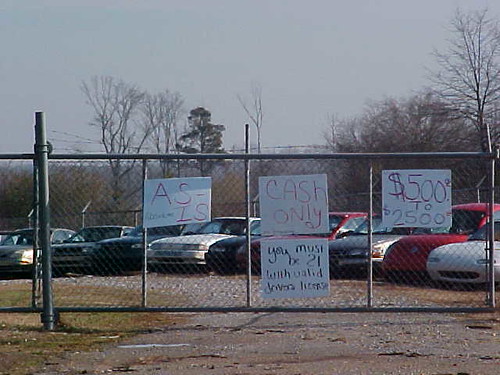President Obama & U.S. House members reach compromise on “cash for clunkers” deal
(Source: Detroit Free Press & Image: Jalopnik)
The bill still must pass Congress and its price tag was not immediately available. But the compromise gives the bill backing from Michigan representatives, several automakers and other groups who might have had enough opposition to block it.
The vouchers would apply to passenger cars, trucks and work vehicles. The old passenger cars and trucks being traded in under the plan would have to get less than 18 miles per gallon in combined driving.
New cars would have to get at least 22 m.p.g. to qualify for a $3,500 voucher; if the new model gets 10 m.p.g. more than the old one, the voucher would increase to $4,500.
New trucks would have to get at least 18 m.p.g., and get at least 2 m.p.g. better than the old model to get the $3,500 voucher and 5 m.p.g. better for the $4,500 voucher.
The vouchers would be available for one year and up to one million customers.
Click here to read the entire article.
FYI, NY times has made available the following documents that can help you understand what vehicles are eligible in the competing version of the Cash of Clunkers legislation





